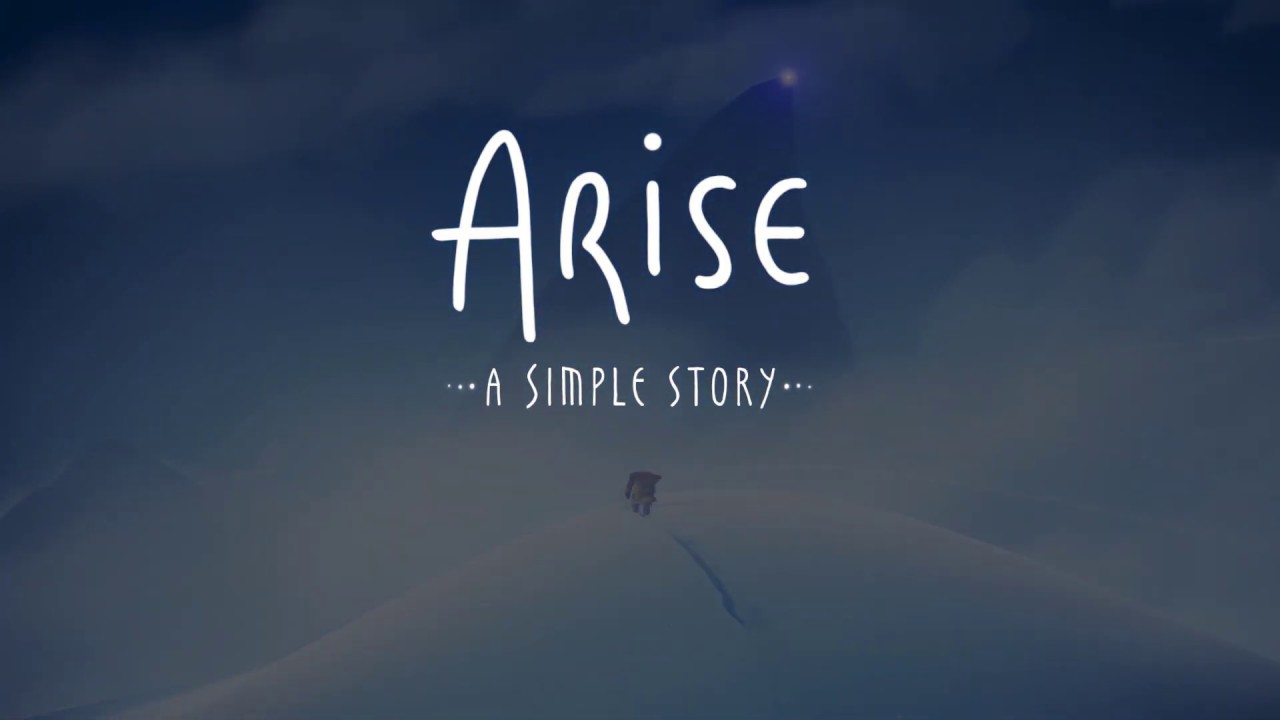Arise: A Simple Story is, as the title implies, a non-convoluted tale of a man reliving his most precious memories in his own personal Purgatory. You see, at the start of the game the nameless Old Man is cremated on a funeral pyre, and instead of waking in Heaven he finds himself lost on a barren, snowy mountaintop. From here he builds totems out of the snow, which allow him to relive key moments from when he was alive.
Inside these ‘memories’ the Old Man is small and seemingly insignificant, which creates an exciting way to navigate the levels. Rocks and small planks of wood can be used as platforms, and bees and floating petals can be used as modes of transportation. Imagine Honey, I Shrunk The Kids and you will instantly visualise the worlds in Arise: A Simple Story. They’re beautiful, imaginative and create a luscious scale of depth that makes the memories more personal to the Old Man.
Besides your typical platforming malarkey, the core mechanic is manipulating time. By controlling a segment of time you are able to change the status of your locale so that you can navigate across it. It’s quirky and fun to begin with because once you get the hang of it you start dreaming of what’s to come but unfortunately towards the end it starts to feel powerless as you’ll find yourself boomeranging from one end of the timeline to the other, solving traversal puzzles without any difficulty. For me, the idea wasn’t experimented with enough and ultimately, I was left unsatisfied.
Arise: A Simple Story is delivered perfectly but executed poorly. The rudimentary carved-from-clay art style is wonderful to look at, and the story is heart-warming, heart-breaking and heart-mending all at once. The issue is, to experience all of this you have to play the game, and quite frankly it’s a clumsy mess I felt I was bumbling my way through. So, although the sentiment and themes are something to admire, the actual playable product that you’re buying is not.
The co-op mode is an absolute delight that I’m happy was included, and if you’re both able to get passed the atrocious physics and depth perception it will make the story even more meaningful. In co-op mode one of you controls the Old Man and the other is in charge of time. I would say cooperation is key but as the time-shifting isn’t as complex as it could have been I don’t think you will have many disagreements, and overall you will have an enjoyable experience together (though a mildly frustrating one).
The story is Arise: A Simple Story’s most redeeming quality and it’s a shame I’m not willing to go into any degree of detail because I don’t want to ruin it for anyone willing to persevere through the easy-but-clumsy gameplay. Simply put, it’s a summary of one man’s life and how the presence of other people – for better or for worse – has shaped it. The character will be a stranger at first but by the end of the game you will consider him a friend who has departed our world.
Another element that adds to the pure beauty is the sound design. Characters don’t speak or emote (they have no faces) yet you’re never confused by the narrative or by the Old Man’s actions due to the wonderful soundtrack. It’s peaceful, melancholy, and brings a Pixar-like flair to it. It’s easy to overlook the sound design in games packed with witty one-liners and lengthy ramblings of exposition and I’m grateful Arise: A Simple Story doesn’t have any of that weight distracting you from its music production.
VERDICT
Should you play it? Maybe
Why… I get frustrated with clumsy controls quite quickly but if you are more forgiving (and more patient) you will have a good time.
But… The core game mechanic, which has you manipulating time to conquer Purgatory, was not pushed to the limits. This left me craving more experimentation really early on.
Reviewed on PlayStation 4. Review code supplied by Piccolo Studio.








